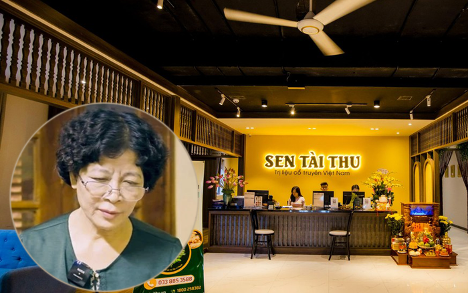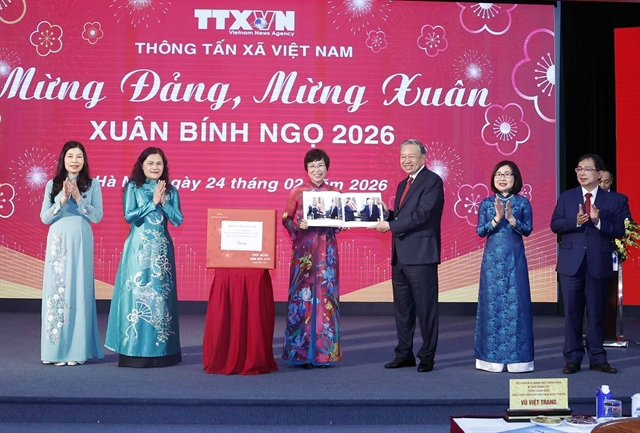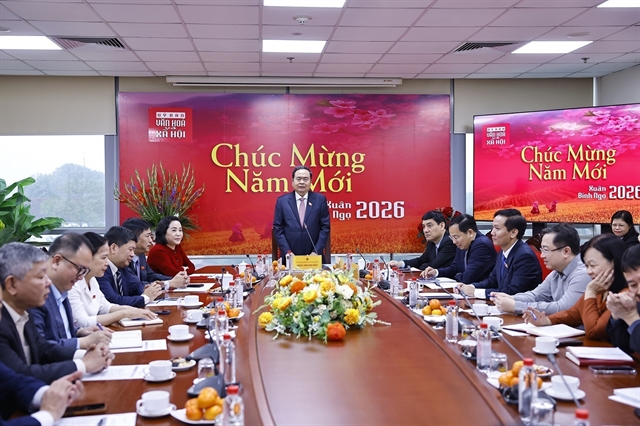 Politics & Law
Politics & Law
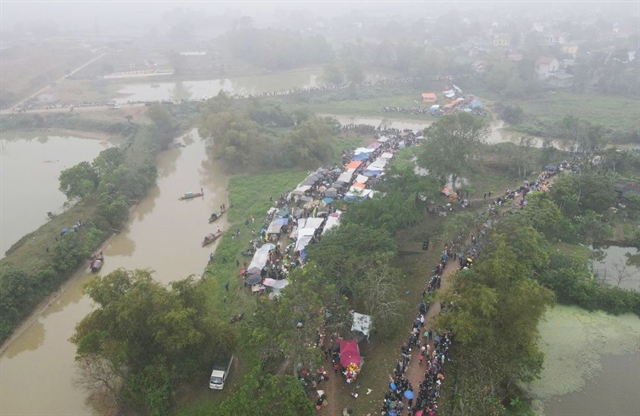
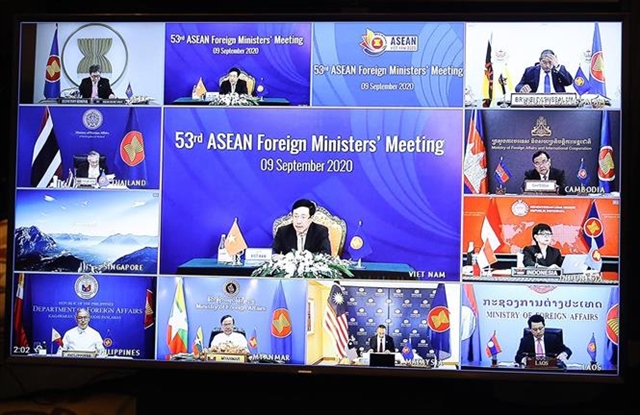
|
| ASEAN foreign ministers underscored the need for ASEAN to uphold the spirit of a cohesive and responsive ASEAN Community to further strengthen cooperation and advance the partnerships to ensure resilience and sustainable development in Southeast Asia and beyond. VNA photo Lâm Khánh |
HÀ NỘI — The 53rd ASEAN Foreign Ministers’ Meeting issued a joint communiqué in Hà Nội yesterday, in which ministers acknowledged that the Coronavirus Disease 2019 (COVID-19) pandemic has caused a severe and multidimensional impact on the region.
But they also expressed optimism that ASEAN Community building efforts will continue alongside ASEAN’s strong mettle and self-reliance.
The communiqué touched upon all aspects, from the community building, to responding to the COVID-19 pandemic, regional economic development and the body’s external affairs.
The ministers underscored the need for ASEAN to uphold the spirit of a cohesive and responsive ASEAN Community to further strengthen cooperation and advance the partnerships to ensure resilience and sustainable development in Southeast Asia and beyond.
They reaffirmed their commitment towards the full and effective implementation of the ASEAN Community Vision 2025 and the ASEAN Leaders’ Vision Statement on a Cohesive and Responsive ASEAN: Rising above Challenges and Sustaining Growth.
They emphasised their shared commitment to maintaining and promoting peace, security, and stability in the region, as well as to the peaceful resolution of disputes, including full respect for legal and diplomatic processes, without resorting to the threat or use of force, in accordance with the universally Final 2 of 28 recognised principles of international law, including the 1982 United Nations Convention on the Law of the Sea (UNCLOS).
In responding to the COVID-19 pandemic, the ministers acknowledged the ongoing government efforts of ASEAN Member States as well as a proactive community approach by ASEAN in advancing its collective efforts to respond to COVID-19.
They noted the important coordinating role of the ACC and the active work of the ASEAN Coordinating Council Working Group on Public Health Emergencies (ACCWG-PHE), as well as the work of the ASEAN health sectorial body and other relevant bodies, which demonstrates ASEAN’s solidarity and ability to address unprecedented challenges of this pandemic in a coordinated multi-sectorial, cross-pillar and multi-stakeholder manner.
They called for enhanced collaboration and sharing of experience with ASEAN’s partners in research, development, production, and distribution of vaccines, providing access to medicines for COVID-19 and other diseases in future public health emergencies, and making them available and affordable to all as global public goods.
They also reiterated their commitment to keep the ASEAN markets open for trade and investment, promote and accelerate trade facilitation efforts, as well as facilitation of investment, and refrain from imposing unnecessary non-tariff measures to ensure supply chain connectivity, particularly for food, medicines, medical supplies, and other essential products.
The officials encouraged the maintenance of necessary interconnectedness in the region by facilitating, to the extent possible, the essential movement of people, including business travels, while ensuring the safeguarding of public health in line with the efforts to combat the pandemic.
In terms of ASEAN Connectivity, the Joint Communiqué called on ASEAN’s external partners and relevant stakeholders to strengthen sustainable infrastructure in the region by investing in and bolstering implementation of projects in the Initial Rolling Priority Pipeline of Potential ASEAN Infrastructure Projects, and supporting efforts to utilise the ASEAN Sustainable Urbanisation Strategy (ASUS).
ASEAN’s member states looked forward to the completion of the ASEAN Database on Trade Routes and Framework for Enhancing Supply Chain Efficiency by the end of 2020, and noted the ongoing efforts to build future-ready skills through technical and vocational education and training (TVET) and higher education.
They also mentioned the importance of promoting complementarities between the ASEAN Community Vision 2025 and the United Nations 2030 Agenda for Sustainable Development.
Also included in the communiqué is a part about ASEAN Political-Security Community, which includes acknowledgement and commitment regarding non-traditional security threats, maintaining peace in the region, maritime co-operation and human rights.
Another important part of the Joint Communiqué is building the ASEAN Economic Community.
The ministers welcomed the progress made in the implementation of Việt Nam’s 13 priority economic deliverables (PEDs), which are being pursued under three main priorities, namely: (i) promoting intra-ASEAN economic integration and connectivity, (ii) deepening ASEAN engagement with the global community for peace and sustainable development, and (iii) enhancing the responsiveness and institutional capacity of ASEAN.
They welcomed the reaffirmation by the Regional Comprehensive Economic Partnership (RCEP) Ministers on their commitment to the goal of signing the RCEP Agreement, and agreed that the signing of this modern, comprehensive, high-quality, and mutually beneficial Agreement would yet be the region’s strongest response to the global COVID-19 pandemic.
The communiqué also includes other parts about ASEAN Social-Cultural Community, ASEAN External Relations, some regional and international issues and the 54th ASEAN Foreign Ministers Meeting in 2021. VNS



